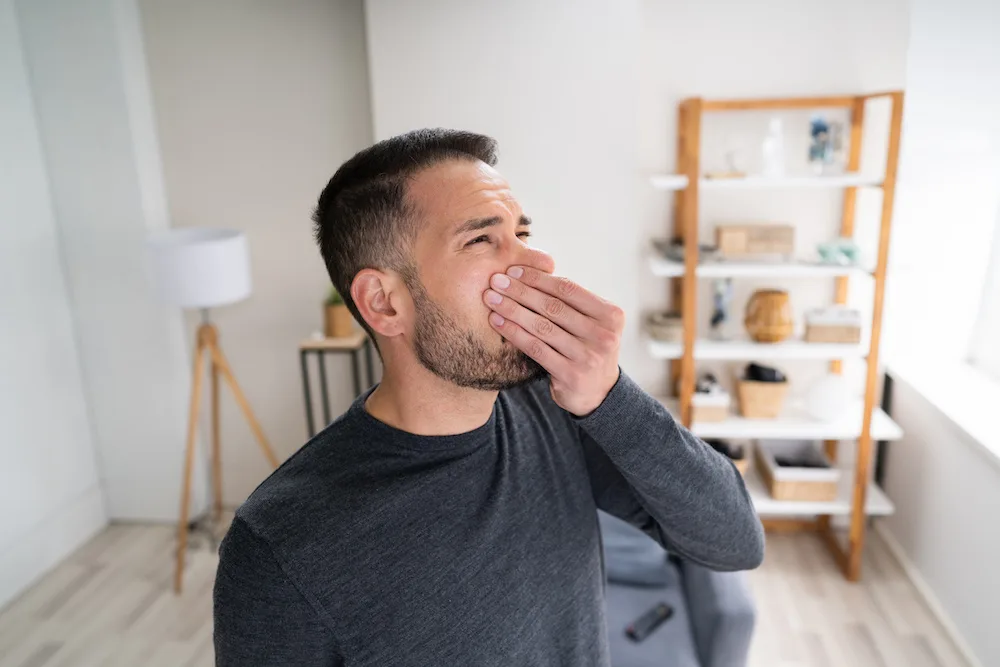The smell of mold is often one of the first signs that mold has begun infesting your home. Mold gives off a distinct scent that people can easily recognize, but often ignore. However, the smell of mold could mean that your family is in danger.
If you ever think that you smell mold in your home, the experts at MoldGone would be happy to offer a mold inspection. Whether or not there is an infestation, our mold remediation team can give you more information on how to recognize mold. We also provide mold removal services to protect you and your family.
Why Does Mold Smell Like It Does?
The unpleasant scent that many of us can recognize as mold comes from the gasses released by the mold as it grows. Mold emits microbial volatile organic compounds (MVOCs) as waste byproducts when it is actively growing.
The scent of the MVOCs released will vary depending on the type of mold and on the moisture and surface conditions. For instance, bathroom mold might smell like stinky socks, while wall mold might give off a rotten scent.
These smelly byproducts of mold growth are signs that your home is infested and mold spores are definitely present in the air you breathe. Even if you can’t see any other noticeable signs of mold infestation, your home and family are at risk of harm as long as the odor is present.
What Does Mold Smell Like?
Because different gasses have different chemical compositions, the exact scent of mold varies depending on the MVOCs it is producing. However, there are generally six types of moldy scents that can help to identify mold growth.
Here are some of the ways that mold can smell:
- Musty and Stale—Old socks that haven’t been washed in a long time might have a similar scent. Carpets, in particular, are susceptible to mold that gives off this smell.
- Damp—This smell is similar to the scent of a pet’s wet fur.
- Earthy—The natural scents that one would find in a dense forest, such as dirt, rotting wood, and decaying leaves, give off an earthy smell. Generally, this is what you will smell with wall mold.
- Fermented—If you’ve ever sniffed an aging cheese, or brewed your own fermented drinks, some types of mold give off a similar aroma.
- Sour and Tangy—Sharp, aggressive smells similar to lemon juice.
- Urine or Ammonia—A scent similar to ammonia after rain or flooding could also be a sign of mold infestation.
These distinctive scents could be a blessing in disguise when it comes to combating hidden mold. It’s crucial to fight a mold infestation as soon as possible, preferably when its growth is limited. A professional mold remediation team can set to work searching for the mold and removing the infestation to protect the health of your family.
What to Do When You Smell Mold
As soon as you start to smell something moldy, you need to take action. Calling a professional and certified mold remediation company is critical to protect your home and family. The longer you wait, the more widespread an infestation can grow, and the more dangerous the health risks become. Contact MoldGone today at 240-970-6533 to schedule an inspection and protect what’s important to you.



